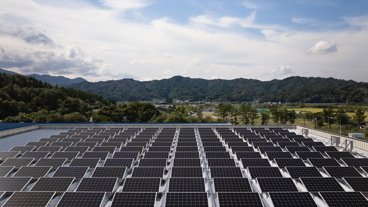Apple has reportedly started commercial production of a second iPhone in India, with a Wistron facility manufacturing the iPhone 6s for sale in the region alongside the iPhone SE, a move that will help Apple avoid import duties for the second India-produced model.
Mass production of the iPhone 6s started last week at Wistron's Bengaluru facility, senior industry executives advised to the Economic Times. The change in manufacturing follows a reported production trial of the iPhone 6s and iPhone 6s Plus in April, with the executives noting the iPhone 6s was selected due to its sales potential.
According to research firm Counterpoint, it is estimated the iPhone 6 series accounts for a third of iPhone sales in India. By comparison, the locally-made iPhone SE provides less than 15 percent of revenue.
Manufacturing partner Wistron received approval to expand its facilities in March, which cleared the way for production of a new model. At the time, it was believed the new factory on 43 acres of land would involve an investment of 6.8 billion rupees ($105 million) from Wistron on the land and the facility, which would be used for smartphone production as well as Internet of Things and bio-tech devices.
Producing the iPhone 6s in India will help Apple avoid any changes to import duties for the smartphone, in a similar way to how the iPhone SE was protected from New Delhi tax increases earlier in 2018.
While the Made-in-India iPhone 6s will only be sold in India, the tax saving is unlikely to affect the price paid by consumers, the executives believe. Since it will take time for the locally-produced iPhone 6s to scale up, imports will continue until production capacity improves, causing some of the iPhone 6s supply to be hit with the tax.
The executives claim Apple intends to expand local production even more, to further protect itself from tax increases. In December, the basic customs duty for smartphones rose from 10 percent to 15, before rising again to 20 percent in February, while in April, the government imposed a 10-percent customs duty on electronic components, including circuit boards, camera modules, and connectors.
In 2018 alone, these tax rises forced Apple to increase its prices in India by between 6 and 7 percent.
Apple's efforts in India have been fruitful for the company, according to details revealed in its Fiscal Year 2017 report, published in April. Revenue in India grew year-on-year by 17 percent with profits up 44 percent, but with overall revenues lagging far behind Chinese vendors including Xiaomi, Vivo, and Oppo who concentrate on the value end of the smartphone market.
 Malcolm Owen
Malcolm Owen

-m.jpg)






 Andrew O'Hara
Andrew O'Hara
 Wesley Hilliard
Wesley Hilliard


 Marko Zivkovic
Marko Zivkovic

 Chip Loder
Chip Loder
 Christine McKee
Christine McKee



-m.jpg)




28 Comments
So how about import duties on Apple products imported into the United States? Would that encourage Apple to manufacture in the USA also? Harley Davidson announced it will move manufacturing overseas to avoid foreign tariffs. Why is it always a one way street for us in the U.S.? Foreign countries can level all sorts of taxes and tariffs to encourage manufacturing in within their borders. But let the U.S. try the same thing and all hell breaks loose. When we do it it’s a trade war. Canada, for example, levies a 250% tariff on milk imported from the U.S. for the express purpose of protecting its dairy farmers from vastly more efficient and productive American dairy farmers.
Again, why is it a one-way street?
Apple is a multinational corporation. They make money anywhere in the world that it is available. Nobody should be surprised by this.
It’s not a one way street. The US has always had tariffs on imports, Trump is just raising them. The US also heavily subsidizes all sorts of American made products, starting with milk. Apple and HD are doing what every company is supposed to do, maximize the bottom line for its shareholders.